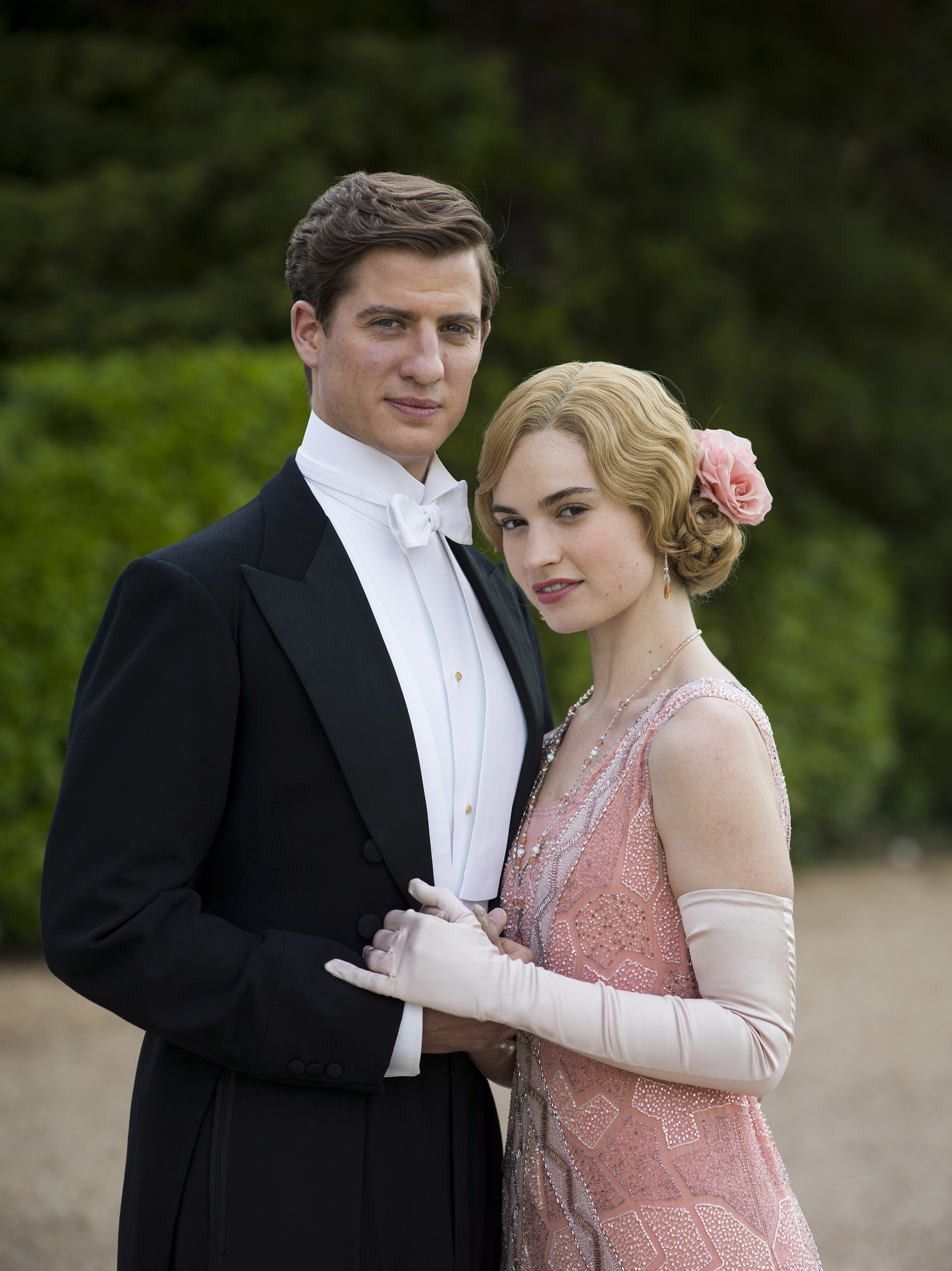
Contains spoilers for the episode of Downton Abbey that aired in the U.S. on Feb. 22, 2015
The latest ritzy wedding on Downton Abbey was an unusual one—and not for reasons the show’s viewers are used to. There were none of the exhales of finally that came with Lady Mary and Matthew’s nuptials, and none of the raised eyebrows that accompanied Lady Sybil’s upstairs-downstairs marriage to Tom, the family’s chauffeur.
Lady Rose MacClare and Atticus Aldridge come from similar socioeconomic backgrounds but different religions—though they’ve changed their name and acquired a noble title, the Aldridges are Jewish—and neither family is thrilled about the engagement. In typical Downton fashion, when it comes to love there is, as the Dowager Countess puts it, always something: Despite the fact that Rose’s aunt Lady Grantham’s father was also Jewish, the match is still not fully accepted within the household. The show has a solid track record of incorporating real-life historical moments; the Aldridge family’s struggle to be accepted mirrors the experience that a wealthy Jewish-British family might have faced in the real 1920s, and the real Rothschild family gets a shout-out during the episode.
But, in this case, the true story behind the fiction doesn’t actually go back quite so far in time. Rather, for Julian Fellowes, the creator and sole writer of the Emmy-award winning show, the plot line is a familiar one.
“In my own youth I went out with a girl for some time from a very prominent, grand Jewish family,” Fellowes tells TIME. “And it was one of my only times when I have been considered ineligible and not a sort of desirable party.”
In the latest episode both families protest the wedding, with Atticus’s father Lord Sinderby calling Rose a shiksa—a derogatory Yiddish term meaning gentile woman—and Rose’s mother staging a scene that makes it look as though Atticus is cheating. Fellowes explains that he had wanted the show to have a romantic storyline in which the disapproval went both ways. The timing of this story airing in the U.S. amid a rise of anti-Semitism in Europe is simply coincidental. (Similarly coincidental was the tragic death of the Grantham family’s dog, who some theorized was killed off because she was named Isis; “[The connection with ISIS] never occurred to us until it appeared in the paper,” Fellowes says.)
Still, though the story was not planned in response to current events, Fellowes acknowledges that the issues raised by this particular Downton wedding aren’t a matter of history only. “The situation is not as simple as one had hoped and these emotions are still rampant,” he says. “All of this stuff is pretty fundamental and we are still looking for solutions to a lot of it. I think, at least I hope, it’s useful and helpful to be reminded that these divisions have had to be addressed and resolved since the beginning of history.”
Likewise, the characters’ fears of assimilation and anti-Semitism are worthy of empathy in any time period. “When [Lord Sinderby] explains why he doesn’t want to have non-Jewish grandchildren, you do—or I hope you do—slightly understand his point of view and you slightly sympathize,” Fellowes says.
This season, which has just one episode left for U.S. viewers, was the first to mention Hitler and the Nazis. In fact, “Nazi thugs” supposedly murdered Lady Edith’s now-deceased beau Michael Gregson. But, though the show is known for jumping ahead in time, Fellowes notes the show’s timeline won’t make it all the way to World War II, by which time George—Lady Mary’s son—would be old enough to fight on the front lines.
“George would have fought in that war because he was born in 1921, I think,” he says. “He would be called up by 1941 or 1942. We’d have to hope he’d get through it. Of course fewer people died in the Second World War [than the First] but people did die, and we have to just hope little George gets through.”
More Must-Reads from TIME
- Why Trump’s Message Worked on Latino Men
- What Trump’s Win Could Mean for Housing
- The 100 Must-Read Books of 2024
- Sleep Doctors Share the 1 Tip That’s Changed Their Lives
- Column: Let’s Bring Back Romance
- What It’s Like to Have Long COVID As a Kid
- FX’s Say Nothing Is the Must-Watch Political Thriller of 2024
- Merle Bombardieri Is Helping People Make the Baby Decision
Contact us at letters@time.com